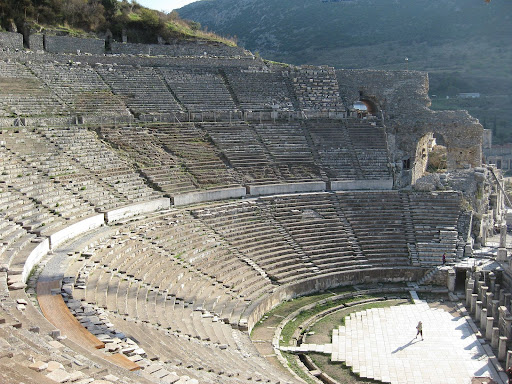
The Book of Acts is a unique document in the New Testament, a history of the earliest church. It provides a historical bridge between the life of Jesus and the letters of the New Testament. Traditionally understood to be written by a beloved doctor named Luke, Acts highlights the key activities of the early Christian church after Jesus’ ascension to a time near the end of Paul’s missionary journeys.
The Day of Pentecost
Acts begins with the account of Pentecost (Acts 2:1-4), a Jewish festival that occurred fifty days after Passover. In the Old Testament, it was a day that celebrated the first fruits of the wheat harvest. In the New Testament, it is the day when the first fruits of the church are brought in, with some 3000 people coming to Christ. This is also the day the disciples were filled with the Holy Spirit, a day promised by Jesus (Acts 1:5). This miraculous event marked the birth of the Christian church and empowered the disciples to spread the gospel, the good news of Jesus’ kingship.
Peter’s Leadership
The Apostle Peter emerged as an early leader in the Jerusalem church. He delivered the first Christian sermon on Pentecost, leading to the conversion of about 3000 people (Acts 2:14-41). He performed miracles (Acts 3:1-10), faced persecution (Acts 4:1-22), and supported the inclusion of Gentiles (non-Jews) into the church (Acts 10:1-48).
Stephen, The First Martyr
Stephen, one of the seven men chosen to help with the distribution of food to the Christian community (Acts 6:1-6), is a key figure in Acts. He delivered a powerful sermon outlining the history of Israel and challenging the Jewish leaders (Acts 7:1-53). This led to his stoning and death, making him the first Christian martyr (Acts 7:54-60).
Paul’s Missionary Journeys

The second half of Acts focuses on Paul’s mission to spread the gospel to the Gentiles. Traditionally, these missions are seen in terms of three missionary journeys. On the first one (Acts 13-14), Paul and a man named Barnabas went to the island of Cyprus and a region known as Galatia (today in central Turkey). Then, after a Jerusalem Council in Acts 15 to discuss how Gentiles can be saved, Paul and a man named Silas go on a second journey. On this journey, they spend almost two years in a city called Corinth in Greece (Acts 16-18).
For the third missionary journey, Paul spends almost three years in a city named Ephesus (Acts 19-20). His time there ends with a riot in a theatre you can still see today. His final trip to Jerusalem is full of foreboding that something ominous will happen to him once he gets there.
He is, in fact, arrested in Jerusalem and held for two years before he finally appeals to Caesar. Much of the last part of Acts (chapters 21-28) entails his appearances before Roman officials and his trip to Rome, which involved a shipwreck. The book ends with Paul under house arrest in Rome for two years.